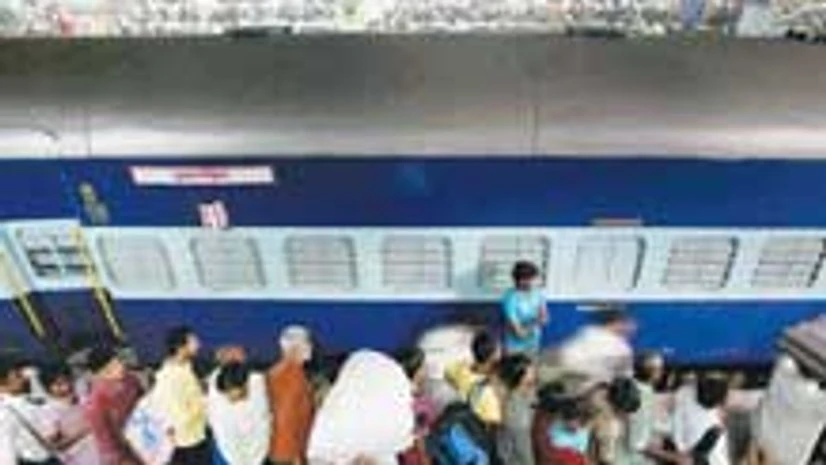Railways Minister D V Sadananda Gowda's conservative approach in his maiden budget came from the organisation's inability to generate a self-sustaining surplus.
After paying the obligatory dividend and lease charges, the minister said the surplus was estimated at a mere Rs 602 crore this financial year, substantially down from Rs 11,754 crore in 2007-08.
Last year, the railways ended with a surplus of Rs 3,783 crore, Rs 4,160 crore short of the revised target. The ordinary working expenses and pension outgo were both higher than the revised estimates presented in February during the interim budget. The operating ratio, a measure of efficiency, deteriorated 2.7 per cent to 93.5 per cent.
More From This Section
After lower-than-expected passenger earnings last year, Gowda expects a marginal two per cent increase in passenger volumes, bringing Rs 44,645 crore in revenues.
The minister admitted the state of affairs needs course correction. "Among the many corrective steps I have planned, fare revision was one, a tough but a necessary decision," he said.
The tight surplus situation over the past years has prevented the railways from adequately investing in its six funds which cater to its requirement for asset replacement and creation, apart from setting aside money for pension and debt service needs. There will be a paltry Rs 101 crore provisioning for debt service, while appropriation to the Capital Fund would be slightly higher at Rs 5,662 crore.
Despite its tight financial position, it has been consistently paying dividend to the government. This year, it would be paying 14 per cent more at Rs 9,135 crore, as against Rs 8,010 crore last year.
Though Gowda has hardly done any substantive tinkering to improve the finances, he has chosen to scale down market borrowings to Rs 11,790 crore, from the Rs 13,800 crore estimated at the time of the interim budget in February. Market borrowings through Indian Railway Finance Corporation had been consistently increasing over recent years. By bringing down the borrowing target for this year, the effort has been to keep lease rentals under control, said Railway Board officials. Money raised by IRFC through market borrowings is utilised for buying rolling stock, leased to the railways. IRFC gets lease rental.

)
